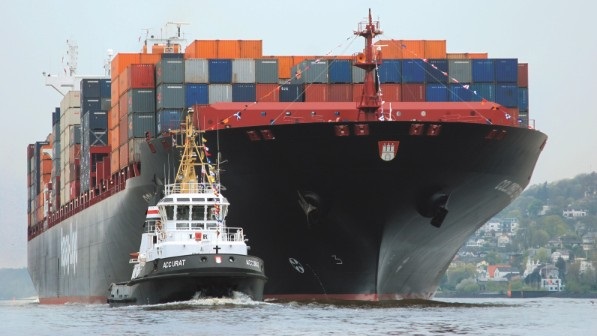EU Lawmakers Announce Deal to Decarbonize Maritime Shipping

Lawmakers at the European Parliament and members of the EU Council announced today that they have reached an agreement on “FuelEU Maritime,” a new regulation mandating reductions in emissions in the maritime transport sector, with targets beginning as soon as 2025.
The agreement marks another step towards the completion of negotiations for the European Commission’s “Fit for 55” roadmap – the EU’s proposed strategy to cut greenhouse gas (GHG) emissions by 55% by 2030, compared to 1990 levels, following decarbonization deals for other sectors such as automotive, road transport, buildings and agriculture, as well as an agreement to strengthen the EU’s internal cap and trade carbon pricing mechanism, EU ETS.
Maritime transport accounts for approximately 75% of EU external trade volumes and nearly a third of internal trade volumes, with volumes expected to increase over time driven by rising demand for primary resources and container transport. The sector generates around 3% – 4% of CO2 emissions in the EU.
As a key part of the Fit for 55 initiative, the FuelEU Maritime regulation aims to increase demand for and use of renewable and low carbon fuels for waterborne transport, and drive reductions in greenhouse gas emissions for the sector, while balancing the need to ensure smooth operation of maritime traffic.
Andreas Carlson, Swedish minister of infrastructure and housing, said:
“Today we managed to agree another part of the Fit for 55 package. The agreement will ensure a level playing field and make sure that fuel suppliers, ships and maritime operators will have sufficient time to adapt for the new conditions so the maritime sector will deliver on the climate targets.”
The regulation includes requirements to gradually reduce the greenhouse gas intensity of fuels used by the shipping sector, starting with a 2% reduction in 2025, and reaching as much as 80% by 2050. The targets include CO2, methane and nitrous oxide emissions over the full lifecycle of the fuels. The regulation includes a voluntary pooling mechanism, under which ships will be allowed to pool their compliance balance other ships, requiring the group as a whole to reach the intensity reduction limits.
The regulation also introduces a requirement for zero-emission at berth, mandating the use of on-shore power supply or other zero-emission technologies in ports by passenger ships and containerships.
According to the EU Commission, the new regulation will help ensure the development of the market for sustainable maritime fuels, by increasing demand for renewable and low-carbon fuels. Adina Vălean, EU Commissioner for Transport, said:
“With the long-term outlook of this agreement, we are sending a clear signal to the sector across the value chain, from shipowners and operators to fuel producers, shipyards and equipment manufacturers, that it is worthwhile and necessary to invest in sustainable maritime fuels and zero-emission technologies.”
The post EU Lawmakers Announce Deal to Decarbonize Maritime Shipping appeared first on ESG Today.